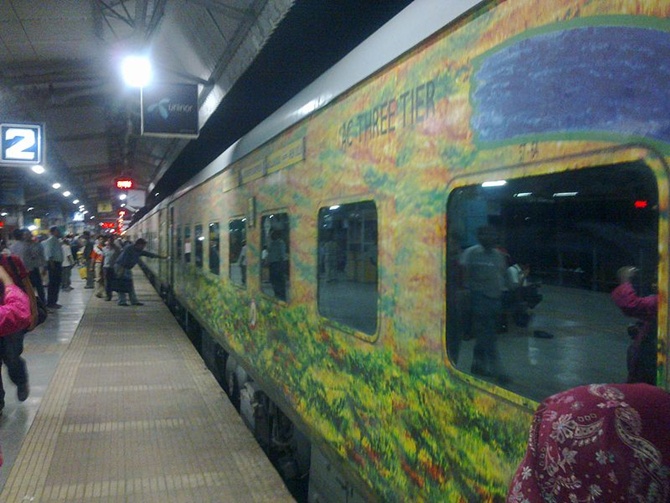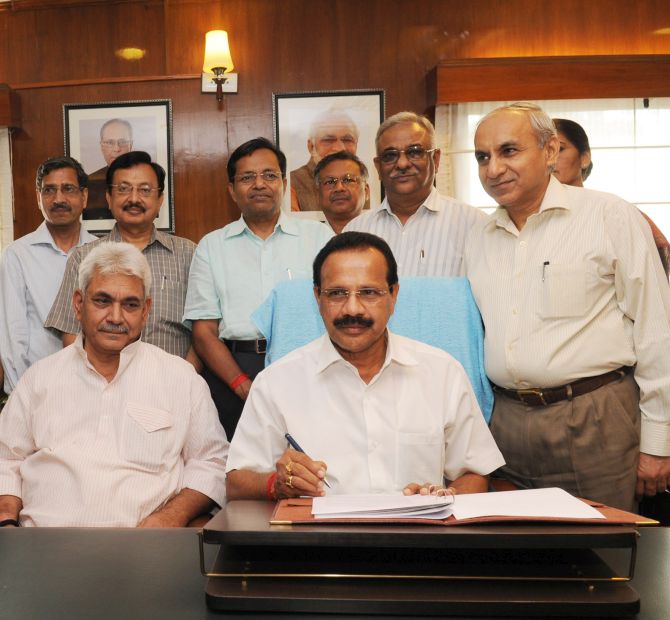 | « Back to article | Print this article |
Need to have private-public partnership to improve condition of railways: Gowda
Railways will interact with Industry and take further steps to attract investment under Public Private Partnership through built, operate and transfer and annuity route and 8 to 10 capacity augmentation projects on congested routes will be identified for this purpose.
Presenting the Railway Budget in Parliament on Tuesday the Minister of Railways D V Sadananda Gowda said Zonal Railways will be suitably empowered to finalise and execute such projects.
The minister said with a large backlog of sanctioned projects, funding continues to be the biggest challenge for Railways.
Text: PIB
Please click NEXT to read further. . .
Please click here for the Complete Coverage of Budget 2014 -15
Need to have private-public partnership to improve condition of railways: Gowda
He said while private investment and customer funding for some port connectivity projects and few other Power Sector Projects has started, much more needs to happen if infrastructure creation has to keep pace with the requirement.
Indian Railways has taken up port connectivity on priority through PPP mode of funding in tandem with Sagar Mala Project of Port Development.
Railways will facilitate connectivity to the new and upcoming ports through private participation, Gowda said.
So far in principle approval has been granted for building rail connectivity to the Ports of Jaigarh, Dighi, Rewas, Hazira, Tuna, Dholera and Astranga under Participative Model Policy of Indian Railways, amounting to a total of over Rs 4,000 crore (Rs 40 billion).
Please click here for the Complete Coverage of Budget 2014 -15

